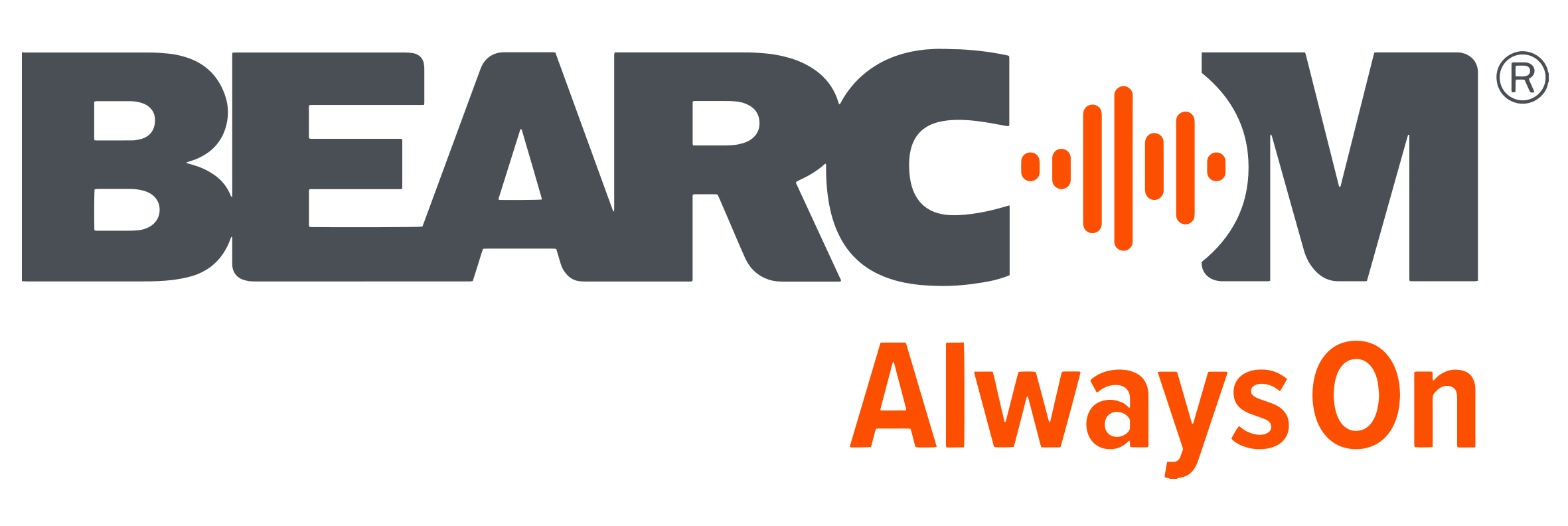
It’s a lot of work bringing the fun all Summer – or all Winter. Whether they’re mowing fairways, patrolling ski runs or maintaining theme parks, people in the outdoor recreation business need the right tools to keep the visitors smiling.
Rugged two-way radios (walkie-talkies) have been one of those vital tools for decades, bringing always-on connectivity to colleagues scattered across hundreds or even thousands of acres. Radios for outdoor recreation have several distinct requirements:
- Extreme water and dust resistance
- Long battery life
- Lightweight, compact form factor
- Ample power and range
- Industrial-strength design and construction
- Advanced emergency alerts.
You might notice we did not mention digital technology. While BearCom is among the foremost advocates of digital two-way radios, we recognize they may not always be a perfect fit for every business. Because outdoor recreation businesses often have large fleets of analog radios, upgrading to digital can be one expense they’d just as soon defer.
These are the organizations Icom America had in mind when it introduced its new F1000/F2000 series of analog radios. The F1000 and F2000 have plenty of power at 4 watts in UHF and 5 watts in VHF. They’re also dust- and waterproof to IP67, effectively sealed tight against the worst that nature can dole out. The radio also announces the current channel so users can change channels without looking at the radio knob.
![ICOM-logo-R [Converted]](https://bearcom.com/media/magefan_blog/IcomLogo_black_red.jpg)
Both radios come in three configurations:
- Base model — basic push-to-talk capability and 16 channels
- S model — four programmable keys, an LCD display and 128 channels
- T model — everything in the S plus a numerical keypad.
All three configurations include features common on some of the most advanced radios on the market. Let’s look at how some of these might work in outdoor-recreation scenarios.
Golf courses
Water hazards and sand traps do more than beguile golfers. They can ruin a radio that slips from the groundskeeper’s grasp. That’s why IP67 — the highest standard for keeping out dust and moisture — is such an asset to the F1000 and F2000. The F1000/2000 series are built to survive 30 minutes of immersion in shallow water. Both models can last up to 14 hours on a charge, so course personnel can stay on the job all day in the farthest reaches of the course and still stay connected.
Ski resorts
The man-down feature that is optional on many business-class radios is standard in the F1000/2000 series. Even the best ski patrollers take the occasional spill; this motion-detection capability can signal their supervisors if a broken ankle prevents them from standing up.
While the waterproofing protects the radio from melting snow, other features appeal to indoor workers in the lodge and the restaurant. Built-in two-tone, five-tone, CTCSS and DTCS signaling allow group communications and selective calling.
Theme parks
The F1000/F2000 has extra-loud audio, a great feature for staffers dealing with screaming toddlers and roaring roller coasters. A programmable lone worker alert can summon help if a maintenance technician has spent too long in the bowels of a thrill ride.
Park security can depend on a built-in scrambler to protect their operations from snoops. There’s also a surveillance function and the ability to disable a radio remotely if one goes missing or falls into the wrong hands.
Answering the question: When should we go digital?
Digital radios provide a raft of benefits that have to be weighed against the expense and complexity of upgrading from analog.
Digital radios can connect to IP (Internet protocol) networks, bringing anybody with an Internet connection within range. They can also be programmed to do simple tasks like turning on security cameras or perform more complex jobs like providing telemetry to monitor the performance of machinery. And they can provide digital data that managers can analyze to improve efficiency and boost profit margins.
There’s no doubt that the future of two-way radios is digital, but not everyone is ready yet. Icom’s F1000/F2000 line gives outdoor recreation companies the choice of sticking with the technology they need today.
 It’s a lot of work bringing the fun all Summer – or all Winter. Whether they’re mowing fairways, patrolling ski runs or maintaining theme parks, people in the outdoor recreation business need the right tools to keep the visitors smiling.
Rugged two-way radios (walkie-talkies) have been one of those vital tools for decades, bringing always-on connectivity to colleagues scattered across hundreds or even thousands of acres. Radios for outdoor recreation have several distinct requirements:
It’s a lot of work bringing the fun all Summer – or all Winter. Whether they’re mowing fairways, patrolling ski runs or maintaining theme parks, people in the outdoor recreation business need the right tools to keep the visitors smiling.
Rugged two-way radios (walkie-talkies) have been one of those vital tools for decades, bringing always-on connectivity to colleagues scattered across hundreds or even thousands of acres. Radios for outdoor recreation have several distinct requirements:
![ICOM-logo-R [Converted]](https://bearcom.com/media/magefan_blog/IcomLogo_black_red.jpg) Both radios come in three configurations:
Both radios come in three configurations:




